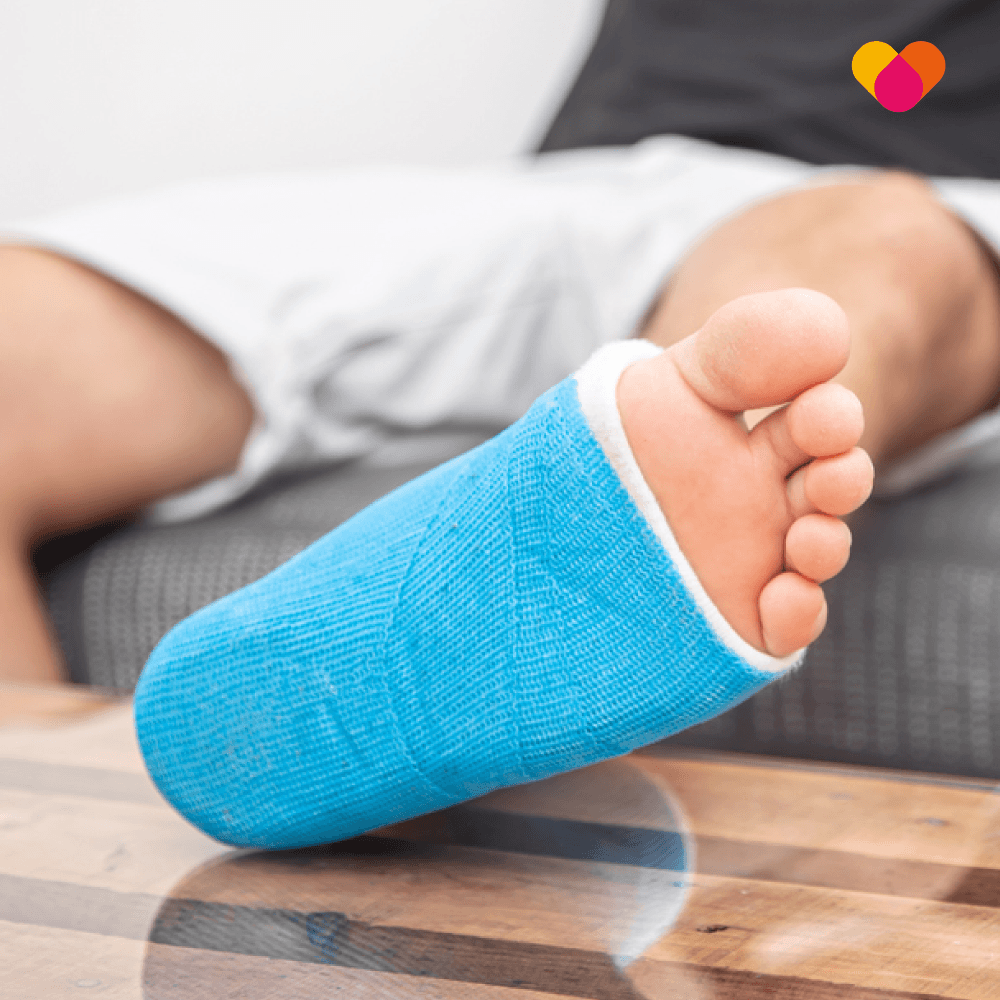The Injury Hub
Fractures: Info, Symptoms & Treatment.
Our Chartered Physiotherapists across Ireland are experts in the causes, symptoms and treatment of fractures.
The Injury Hub: Fractures
What is a fracture?
A Fracture is a break in the bone, which is either complete or partial. Most fractures are caused by a sudden injury that puts more pressure on the bone than it can withstand.
Fractures most often occur in the hand, wrist, ankle, collarbone and the neck of the femur of the hip, which can be the result of a fall. This is often complicated if you have if you have osteoporosis as an underlying pathology.

How We Can Help.
Symptoms, Treatment & How We Can Help Your Recovery.
Learn about common fracture injury symptoms, effective treatments, and how our expert team supports your recovery journey every step of the way.
Symptoms Of Fractures
The symptoms of a Fracture in vary widely depending on which bone is fractured. The most common bone fracture is the Shin bone. This fracture often occurs as a compound fracture, meaning the bone is protruding from the skin. Other symptoms of a bone fracture include:
Swelling or bruising over a bone.
Deformity of an arm or leg.
Pain in the injured area that gets worse when the area is moved or pressure is applied.
Inability to use the limb.
Not all fractures are to a person’s arm or leg. Trauma can result in skull, ribs, pelvic or spinal fractures. An unstable fracture can cause further damage, therefore, if you suspect a fracture seek medical attention immediately.
Fracture Treatment
Immediate medical attention is advisable if you have experienced a fracture. Moving a broken bone can increase pain and bleeding and can cause further damage to soft tissue structures.
Broken bones heal by themselves. However, medical treatment is needed to insure correct alignment of the broken bone. Depending on the site and severity of the fracture, treatment may include a splint, brace, plaster and/ or insertion of metal rods or plates.
After the bone has healed, our highly skilled Physiotherapists will plan a rehabilitation programme taking into account your needs and lifestyle. Using specific exercises, the aim is to reduce any swelling, regain full muscle power and joint movement and to bring back full function.
Our Expertise
Physiotherapy is used once the bone has been realigned and splinted, usually by encasing it in plaster. Our Physiotherapists can offer advice about positioning of the limb as well as teaching exercises to avoid muscles wasting and to prevent stiff joints while still in plaster.
Our Physiotherapists can also help the patient in sourcing and the appropriate use of crutches and other supportive devices.
Once the plaster or supportive device has been removed, our Chartered Physiotherapist will devise a specific rehabilitation programme tailored to your needs.
All our Physiotherapists have extensive experience in the managed of fractures, so you know that you and your bones are in safe hands.
Our patient’s health journeys

How Much Does It Cost?
Please refer to our individual clinic location pages for pricing information.
What Are Your Clinic Hours?
Monday – Friday: 8am to 8pm
Saturday: 9am to 5pm
Sunday: Closed
*Please note, opening times can vary between clinics
Where Is This Service Available?
This service is available in any of our nationwide clinics.
Am I Covered By Health Insurance?
We work with all major insurers – Vhi, Laya and Irish Life. We recommend you check your own policy for its terms and conditions to see what cover you have.
How Do I Contact You?
Our Patient Services team is available to help you Monday to Friday from 9am to 5pm, and Saturdays from 8:00am to 4:00pm.
Call Us: 01 611 1740

Spectrum Physio
You’re In Good Hands.
We’ve treated over 250,000 patients across our nationwide clinics.







